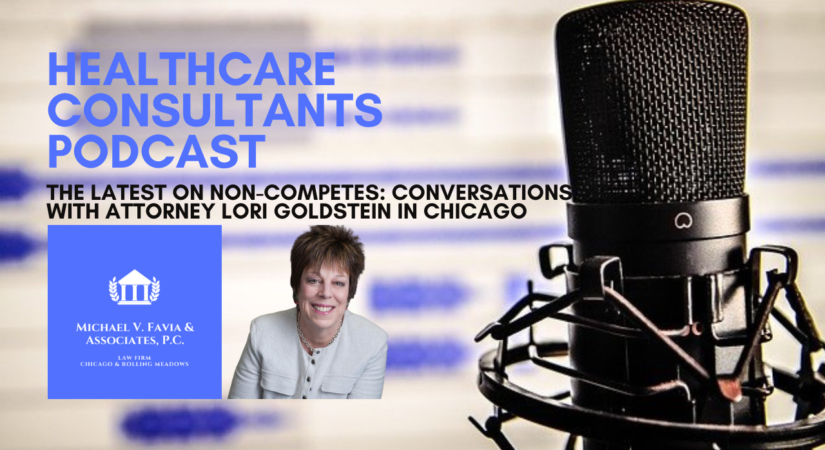The Healthcare Consultants Podcast, hosted by Michael V. Favia, principal attorney at Michael V. Favia & Associates, P.C., presents a crucial episode focusing on the Federal Trade Commission’s (FTC) new rule banning non-compete agreements nationwide. This significant regulation aims to enhance job mobility, drive innovation, and encourage new business formations. In this episode, Attorney Lori Goldstein discusses the implications of this rule for employers and employees across the United States. Enjoy our podcast about the FTC non-compete ban!
Read the FTC Announcement of the Rule Banning Noncompetes
Understanding the FTC’s New Rule: The FTC’s decision to ban non-compete agreements represents a major shift in employment law. These agreements have traditionally restricted employees from working for competitors or starting their businesses. The new rule seeks to eliminate these restrictions, allowing for a more competitive job market.
Key Questions Answered: In this episode, Lori Goldstein addresses several important questions about the new rule:
- Are non-competes now unenforceable throughout the United States? If the FTC rule is upheld, non-compete agreements will be unenforceable nationwide, fundamentally changing how employment contracts are structured.
- What happens if the FTC rule is upheld? If enforced, the rule will allow employees to change jobs and start their businesses without fearing legal action from former employers.
- Can employees solicit former employers’ customers, prospects, and employees? While non-competes will be banned, other agreements, such as non-solicitation and confidentiality agreements, may still be enforceable to protect business interests.
- Can employers prevent former employees from accepting unsolicited work from clients? Generally, no. Employers cannot stop former employees from accepting work that is not solicited by them. However, robust confidentiality agreements can still offer some level of protection.
- Will employers be able to prohibit employees from competing while still employed? Employers can still impose restrictions to prevent competition during an employee’s tenure with the company.
Implications for Businesses and Employees: The ban on non-compete agreements means businesses must adapt their employment practices. Lori Goldstein emphasizes revising existing agreements and focusing on enforceable protections like confidentiality and non-solicitation clauses. She also discusses potential exemptions and advises businesses to stay informed about federal and state laws to ensure compliance.
Preparing for the Change: Lori offers practical advice for companies to prepare for the new rule:
- Review and Revise Agreements: Companies should thoroughly review their current employment agreements to remove or modify non-compete clauses and reinforce other protective measures.
- Educate HR and Management: Training HR teams and managers on the new rule and its implications are crucial for a smooth transition and continued compliance.
- Stay Updated on Legal Developments: To navigate this evolving landscape effectively, it is essential to keep up with legal updates and consult legal professionals.
Conclusion: This episode of the Healthcare Consultants Podcast thoroughly examines the FTC’s new rule banning non-compete agreements and its wide-ranging impact. Attorney Lori Goldstein’s discussion offers valuable information for employers and employees, ensuring they are well-prepared for this transformative change in employment law.
Listen to the Episode: Tune in to this important episode of the Healthcare Consultants Podcast to understand how the FTC’s non-compete ban will affect your business or career. For more information and legal advice, visit www.FaviaLawFirm.com.

